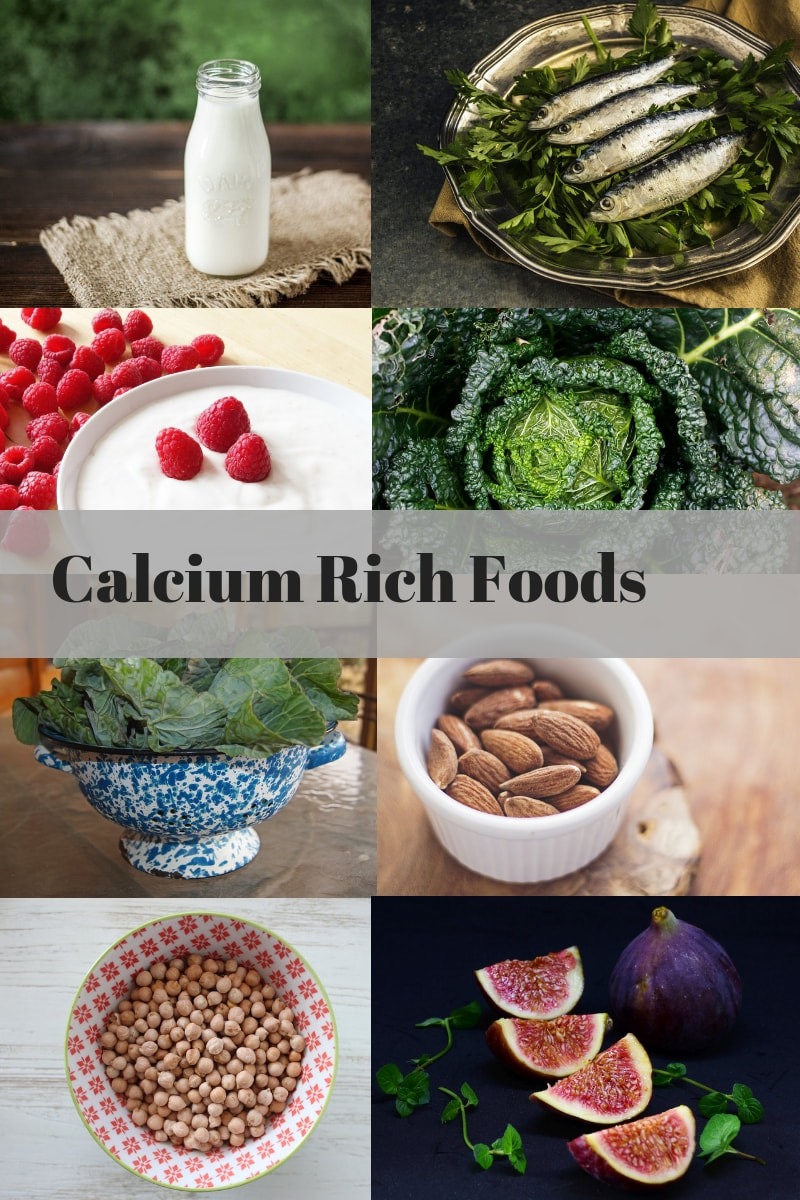|
Vitamin D is one of the most common deficiencies. It is estimated that 1 billion people globally have Vitamin D deficiency and 50% of the global population have Vitamin D insufficiency. It is estimated that about 90% of our Vitamin D comes from exposure to sunlight whilst a small proportion comes from our diet. Individuals with darker skin have increased amounts of melanin in their skin which decreases the efficacy of Vitamin D absorption which is why people with darker skin are at greater risk, particularly in the UK where from October to March, the rays from the sun are not strong enough to enable our bodies to make vitamin D. This is one of the reasons that the Department of Health and the NHS now recommend that everyone in the UK should consider taking a vitamin D supplement from October to March. The elderly, overweight and those living in the Northern Hemisphere are also at greater risk. A 2017 study additionally revealed that shift workers, health care workers and indoor workers are at increased risk of developing a deficiency due to reduced outdoor time and sunlight exposure. Apart from this, malabsorption syndromes such as celiac disease, short bowel syndrome, gastric bypass and cystic fibrosis may also lead to Vitamin D deficiency. Medications such as phenobarbital, carbamazepine, dexamethasone, nifedipine, spironolactone, clotrimazole, and rifampin induce hepatic p450 enzymes which speed up the degradation of vitamin D.
Why do we need Vitamin D? Vitamin D's primary and vital function in the body is to maintain blood levels of calcium. It does this through increasing the amount of calcium absorbed from food in the small intestine. This helps the body to form and maintain healthy bones. A deficiency in vitamin D can lead to osteomalacia or rickets. A deficiency of vitamin D also increases the risk of developing osteoporosis and experiencing fractures and broken bones. Apart from this, vitamin D deficiency has also been associated with increased risks of cancer development, particularly breast, colon and prostate cancers. Researchers have found that increased sunlight exposure and circulating vitamin D are associated with reduced occurrence and mortality in many types of cancer. Vitamin D is well known for its impact on the immune system and studies suggest that inflammation is often at the root of many modern autoimmune diseases including multiple sclerosis, rheumatoid arthritis, digestive disorders and high blood pressure. University of Aberdeen researchers studied patients in the North of Scotland which has the highest rate of MS in the UK who were treated during the winter with UV-B light therapy. Dr Anthony Ormerod, Clinical Reader in Dermatology at the University, said: “Our study shows that UV-B light, which mimics sunshine, can have a striking effect on the immune system of patients." In addition, a study in 2018 from Trinity College Dublin linked vitamin D deficiency with an increased risk of depression of over 75% over a four year follow up period. What are the symptoms of Vitamin D deficiency? There is evidence to suggest that people with vitamin D deficiency are at increased risk of developing health conditions such as osteoporosis, autoimmune conditions, depression and cancer. Symptoms can also include weakness, chronic fatigue, depression, insomnia, anxiety, weakened immune system, inflammation and weak or broken bones. We would recommend that you are tested for vitamin D deficiency if you experience any of these symptoms. Vitamin D tests are available on the NHS and in our Nourishing Insights clinic. This is a simple pin prick blood test which can be done at home. Find out more about Vitamin D testing and order here. How can I optimise my vitamin D levels? The main way in which we obtain vitamin D is from exposure to natural sunlight from the sun. When UVB rays land on the skin, a substance in the skin, 7-dehydrocholestrol is converted into vitamin D3. There are two types of supplemental vitamin D; Vitamin D2 and Vitamin D3. The type of vitamin D our bodies makes naturally is vitamin D3. Whilst the body is able to convert some D2 for use, vitamin D3 is believed to convert 500 times faster than D2 and is estimated to be four times more effective in humans. Most experts suggest spending 20 minutes in the sun without suncream (suncream blocks the absorption of vitamin D) to enable your body to absorb vitamin D naturally without damaging the skin. For darker skinned people, the time recommended increases to around 40 minutes. If you do not want to expose your skin to the sun, you should use a good quality supplement to make sure you are obtaining enough vitamin D to protect your immune system, bones, joints and general health. Are there any food sources? Sunlight is the best source of vitamin D and it is difficult to obtain vitamin D only from food. However, there are some food sources and research suggests that eating foods which are rich in Vitamin D can help you acquire more. Some of the best sources of vitamin D in foods are halibut, mackerel, salmon, herring, trout and eggs. Mushrooms are one of the only plant sources of vitamin D and they acquire vitamin D the same way the human skin does, through exposure to the sun. The vitamin D content of mushrooms is increased through exposure to Ultra Violet light. The quantity of vitamin D in mushrooms can vary dependant on how they are grown. Who should supplement and how much should I take? Current Department of Health recommendations suggest the following ‘at risk’ groups should be using a vitamin D supplement all year round. These include:
From October to March the Department for Health recommends that everyone should supplement with Vitamin D. However, bare in mind that many of us now are spending little time in the sun and when we are we are wearing sun creams or covering up. Even in hot countries where people are going from air conditioned homes to offices and malls with little exposure to sunshine has led to a global epidemic with deficiency. For example, in countries such as Pakistan it is estimated that 80% of the population is deficient. In addition, it is estimated that vitamin D has a half life of about 15 days which would mean that every 2 weeks our levels halve without ongoing exposure to sunshine or supplementation. Therefore, your holiday in the sun in February is not going to help you in April. Dosages vary according to age, bodyweight and level of deficiency. Testing is recommended to optimise your dose. Are there other nutrient considerations when supplementing with Vitamin D? Vitamin D and K2 Vitamin D and Vitamin K2 work synergistically with each other to ensure that calcium is directed out of the arteries and into the bones where it helps improve bone density. Without enough vitamin K2 calcification within the arteries can occur. We normally advise a combination product of D and K2 for the post-menopausal age group. Vitamin D and Magnesium Magnesium plays a key role in determining how much vitamin D our bodies can make. It’s suggested that people whose magnesium intake is high are less likely to have a vitamin D insufficiency than people whose magnesium levels are low. It’s also claimed that magnesium supplementation increases vitamin D levels in people who are deficient in the vitamin, but causes a reduction in people whose intake is high. Too much vitamin D can increase calcium levels, which in turn can lead to certain health complications. To learn more about magnesium and signs of deficiency, have a look at our blog. To find out more about Vitamin D supplementation contact us here, or come and visit us at 44 St Andrew Street Aberdeen. Nutritional Therapy consultations are also available on Zoom and skype. More information here.
1 Comment
Vitamin B12 is an essential water soluble vitamin which is required for a range of functions in the human body. It is one of the B-Complex group energy giving vitamins which are important for promoting a healthy nervous system and detoxifying the body. These vitamins act as coenzymes, helping the body to obtain energy from food. They also regulate important functions of the cardiovascular, endocrine and digestive systems. The body can not produce B Vitamins and so they must be obtained from our diet.
Vitamin B12 is one of the most common deficiencies in the western world and can occur for a number of reasons. Pernicious anaemia (an autoimmune condition) is one common cause of Vitamin B12 deficiency. Due to a lack of intrinsic factor in this condition, the body is unable to absorb Vitamin B12 and so becomes deficient. This condition can result in a range of symptoms including nerve damage, muscle weakness, extreme fatigue, numbness in hands and feet, osteoporosis, depression, dementia, digestive issues, and a smooth, thick red tongue among others. If you have any or all of these symptoms, you should make an appointment with your GP to rule this out. Pernicious anaemia is normally diagnosed by a GP and treatment includes routine B12 injections. However, it is also possible to develop B12 deficiency as a result of not getting enough Vitamin B12 from the diet or absorption problems as a result of digestive issues such as leaky gut, coeliac disease, Crohn's or SIBO (small intestinal bacterial overgrowth). Vitamin B12 is primarily found in animal products, such as meat, fish, milk, cheese and eggs meaning that deficiencies of this nutrient are common among vegetarians and vegans. One of the difficulties being that although there are some fortified foods such as nutritional yeast and fortified milks which can provide some B12, not all of those following these diets are conscientious about ensuring that their needs are covered via nutrition. Therefore, supplementation becomes a requirement. Certain medications such as proton pump inhibitors and anticonvulsants can also affect the absorption of Vitamin B12. In addition, anti-depressants and the oral contraceptive pill can deplete B12 among other nutrients. Whether you have been on the pill or are currently taking it, a good B-Complex can help replenish the nutrients depleted by the pill while also supporting hormone balance. B12 is a particularly important nutrient for promoting a healthy nervous system and many Psychiatrists such as Dr Drew Ramsay are now encouraging their patients to eat foods such as oysters which are rich in both Vitamin B12 and Omega 3 (two nutrient deficiencies which have been linked to higher risk of suicide and depression). A 2010 study led by researchers at Rush University looked at more than 3,500 adults and showed that a higher intake of B6, B9 and B12 whether through food or supplementation was associated with a decreased likelihood of depression for up to 12 years follow up. The most common form of B12 supplementation is cyanocobalamin which is less expensive but it is not found in nature. It may release small amounts of cyanide into the system which may have relevance to an individual with impaired detoxification as a result of genetics, nutrient deficiencies or chronic illness. The recommended form is therefore methylcobalamin which interestingly is the form produced by our gut bacteria. Likewise if you are wanting to increase folate (B9) we would recommend methylfolate rather than folic acid for better absorption. Read more in our blog on folic acid vs folate. We have a range of B Vitamin supplements available, some of which are practitioner only products and therefore unavailable online. If you are interested in any of the B Vitamins for supplementation, come in for a chat or give us a call so that we can make the best suggestion for you. We can also provide relevant testing if appropriate. "Don't you just love New York in the fall, it makes me wanna buy school supplies" You've got mail.
Starting the new school year can be an exciting time. Buying new stationary, new uniforms and going into a new class with a new teacher can make it an unsettling but exciting time of change for children. But, as every mum and teacher knows, those first few weeks back always bring an explosion of bugs, and children who are immune compromised can become easy prey for some of these viral attacks. Making some diet and lifestyle changes can help boost your child's immunity and make a real difference to their overall health and wellbeing. Here are our top tips for a healthy school year. For more information in some of the common childhood ailments such as eczema have a look at our comprehensive blog here. Following the steps recommended below will support children suffering from a range of immune system challenges including asthma. More information on nutritional therapy for children found here Optimise Vitamin D Vitamin D is an essential vitamin which is essential for maintaining healthy levels of calcium in the blood. Vitamin D also plays an essential role in immune system health and cell growth. The main source of Vitamin D is from exposure to natural sunlight from the sun. However, from October to March the rays of the sun in the UK are not strong enough to enable our bodies to make Vitamin D. As a result, it is now a government recommendation that everyone should supplement with Vitamin D from October to March each year. Recommended dosages for children vary according to body weight. Look after Gut Health It is estimated that between 70%-80% of our immune system is located in our gut which means that what we feed our gut bacteria can impact our immune health. Prebiotics such as garlic, leeks and asparagus feed the friendly bacteria in our guts so consuming these on a regular basis can benefit gut health. Probiotics have also been shown in clinical trials to have a beneficial impact on gut and immune health. Optibac and Proven both have good ranges for children. ProVen Fit for School was used in the ProChild study, which took place over six months and those children taking Fit for School saw a 30% reduction in absenteeism from school due to coughs, colds and other upper respiratory tract infections (URTIs). The study also found that the duration of coughs and colds was halved in the children taking Fit for School and visits to the doctor and consequently prescription for antibiotics was reduced by 43%. This probiotic is suitable for children aged 4-16. Consume Omega 3 Omega 3 is great for our brains and helping us focus. Omega 3's also reduce inflammation and prevent attacks by toxins or pathogens. Food sources include oily fish, eggs, walnuts, flax, chia seeds and grass fed meat. If you're concerned that your child won't eat many of the foods which contain Omega 3, you could supplement with a good source of omega 3 such as Eskimo 3 Bright Kids Jelly Splats. Eat a Rainbow Eating a wide variety of colourful fruits and vegetables ensures we get a combination of vitamins, minerals and antioxidants to support the immune system. If you're concerned about any nutritional gaps, BetterYou have designed a handy multi-vitamin spray for children with a blend of 14 essential nutrients. The robust multi-nutrient formulation contains the full spectrum of B vitamins, including folate, combined with vitamins A, C, D, K, selenium and iodine. Sleep Sleep is when our bodies rest and restore. It is therefore essential for optimal immune health. Aiming for at least 10 hours sleep for little ones is a great way to ensure they get the rest they need to grow and thrive. Avoid electronics and blue light effect from TV/ computer etc at night and ensure a good winding down routine of baths and stories. Relaxation music can be helpful for us all and some children benefit from white noise. Essential oils are ideal to diffuse in the bedroom and can aid sleep and relaxation. Talk to us about appropriate essential oils and other supports such as magnesium cream which can be helpful depending on age of the child. We hope you all have a happy and healthy school year! If you would like to know more about nutritional therapy for children, you can find more information on our children's nutritional therapy page or drop us an email to [email protected]. We also offer call backs too if you follow this link and one of the team will give you a call to discuss your needs. To order any of the above products mentioned just email [email protected] and we will send you a link to order the correct items. Calcium is an essential mineral for bone and teeth health. Although almost 99% of calcium is found in the bones and teeth, it is also found in the blood, muscles and other tissues. Calcium plays an important role in heart and nerve health, blood clotting, hormone secretion and muscle contraction. Additional functions include helping to control levels of magnesium, potassium and phosphorus in the blood. Calcium is the most abundant mineral in the human body, and so it is vital that we are meeting our requirements for optimal health. Calcium is clearly a vital mineral for health, but in order to maximise the benefit of consuming calcium rich foods, there are other factors we have to consider. For example, did you know that to properly absorb calcium, we also need magnesium, vitamin D and vitamin K2. If we don’t have adequate amounts of these vitamins on board, our ability to absorb any calcium we do eat is impaired. This is one of the reasons why it is better to get the calcium our bodies require from food sources or complex food supplements rather than isolated calcium supplements which aren’t always well absorbed. So what are the best food sources of calcium? Some of the best sources of calcium include sardines, organic milk, organic yoghurt and kefir, kale, collard greens, chickpeas, almonds and figs. Other good sources include sweet potatoes, bone broth, green leafy vegetables, beans, and broccoli. Currently, the NHS recommended daily allowance of calcium is 700mg, although you will see other experts recommending that we consume up to 1000mg per day for adults and 1200mg for over 50 year olds. However, the key thing we have to consider is absorption. As I always explain to people, we are not just what we eat, nor are we just what we absorb of what we eat, but we are also what our food ate! Impact of changing farming practices Intensive chemical farming practices have impacted minerals in the soil leading to our foods being depleted of vital minerals such as magnesium and calcium. Some conventional farmers have stopped properly rotating crops and replenishing the soil with natural fertilisers such as manure, which means our foods are much lower in calcium than they were in our grandparents time. Our advice therefore, is where possible to choose organic foods which have been shown to have higher nutrient value and higher antioxidant value in numerous studies, the largest to date being from Newcastle University. Other absorption challenges Gastrointestinal problems and conditions such as IBS, leaky gut syndrome, reflux, IBD and coeliac disease cause further problems with the absorption of nutrients. Any inflammation in the digestive tract impairs the absorption of nutrients. Counterintuitively therefore consuming dairy when you have a dairy intolerance does not mean that you will be able to absorb all the calcium from the food. Malabsorption of nutrients is of particular concern for those with IBD and coeliac disease who are at higher risk of other conditions such as osteopenia and osteoporosis as a result of their condition. For this reason, they are also often deplete in a wide range of nutrients, regardless of how good their diets are. Other issues such as low stomach acid which can be caused by stress, H-pylori, bacterial infections, antacid use, proton pump inhibitors and certain other medications can also lead to the malabsorption of calcium and other minerals. Add to this the fact that many drug medications actually deplete much needed minerals and vitamins and you can see where we can fall into difficulties. Sometimes therefore supplementation may be needed to normalise areas of concern such as stomach acid levels and digestive enzyme function. Low Vitamin D Many people have low vitamin D levels which impacts calcium absorption in the body. This is of particular concern for people who live in the northern hemisphere as during the winter (from October to March in the UK) sunlight doesn't contain enough UVB radiation for our skin to be able to make vitamin D. As sunlight is our bodies primary source of vitamin D, this is of major concern and is one of the reasons why the NHS now recommends everyone supplement with vitamin D over the winter months. During the summer, suncreams also block vitamin D absorption which means that if you are not having at least 20 minutes of unprotected sun exposure every day, you may be deficient in this vital nutrient. Good levels of vitamin D3 are essential for calcium intestinal absorption as vitamin D can increase calcium absorption in the intestinal tract by up to four times the normal rate. We normally recommend a vitamin D dose based on body weight. If you would like to test your vitamin D to optimise levels, we have testing services available at the Aberdeen clinic. Low Vitamin K2 As we know, D3 helps the body to absorb calcium, but vitamin K2 helps the body carry the calcium to your bones. This is important as calcium which is absorbed but not properly utilised in the body may be deposited into soft tissue causing cysts. Excess calcium in the blood stream can also be deposited in the kidneys where it may cause kidney stone formation. Vitamin K2 also ensures that the calcium is properly utilized and doesn't bind to oxidized LDL cholestrol, creating plaques which can cause blockages in the arteries. It can be so easy to fall into the trap of finding our favourite foods and forget about the variety of nutrients and minerals we get from a range of foods. Look at the list above and think about whether you are incorporating a good range of foods with calcium. If you are concerned that you may not be or think you would find it hard to incorporate enough into your diet on a regular basis, or have any of the gastrointestinal problems listed, it may be a good idea to find a good supplement form. Supplements we normally recommend are in combination form, alongside other essential nutrients for bone health. For people with gastrointestinal problems, we often recommend transdermal products which bypass the gut and are absorbed directly into the blood stream. BetterYou have designed a range of supplements for people with these kinds of issues. We particularly like their magnesium and calcium mineral lotion for bone health and their vitamin D and K2 spray. If you have any concerns, or queries about optimal dosages you can always come and see us and ask for advice at 44 St Andrew Street, Aberdeen. Some of you may have heard that a number of companies have switched from using folic acid to methylated folate in their prenatal supplements. We thought we would explain what the difference is and why it matters which form you take it in.
What’s the difference? Folate is a water soluble group of B vitamins (also known as vitamin B9) these are naturally occurring and most commonly found in green leafy vegetables, eggs and liver. Folic Acid is the synthetic oxidised version of this and is commonly found in supplements and used to fortify foods. Why do we need it? Folate is necessary during rapid cell division and growth which unsurprisingly means that we double our requirement for it during pregnancy. Inadequate folate levels are also associated with the following:
So why does it matter which form I take it in? In order to convert folic acid into the folate that we need, it has to undergo reduction and methylation in the liver. Unfortunately, around 40% of the population have methylation issues particularly those with an MTHFR SNP (Methyltetrahydrofolate Reductase Single Nucleotide Polymorphism). Therefore, to ensure you are getting enough folate it would be preferable to supplement with bio-available folate rather than folic acid to ensure you are getting what your body needs. Are there any other benefits? A study by Bentley et al, found that mothers who supplemented with folate, compared with those taking folic acid, had increased haemoglobin levels at the end of the 2nd trimester and at delivery and that cases of anaemia were lower. Other defects such as cleft palate and tounge tie are also being linked to MTHFR and poor methylation. Therefore, supplementing with folate may help reduce the occurrence of these conditions (although genetics has its role to play). Is it only pregnant women who need to be aware of this? Folate deficiency has been found to be high in a range of psychiatric disorders including depression, dementia and schizophrenia. Epileptics taking anticonvulsants are very often low in folate as these drugs inhibit folate absorption. As mentioned above elevated homocysteine levels are a risk factor for cardiovascular disease and stroke. Therefore people at risk of these conditions due to symptoms such as hypertension or those with a family history of cardiovascular disease may wish to consider supplementing with methylated B vitamins. You may also want to consider asking your GP for a homocysteine blood test to assess your risk. Which foods should I increase to provide folate? Dark leafy greens are tops such as spinach and romaine lettuce. In fact the word folate actually comes from the latin word 'folium' meaning foliage, so it's no surprise that the leafy stuff is going to be an excellent source. Also broccoli, cauliflower, sprouts, beans, peas, lentils, nuts and seeds, avocado and asparagus give good amounts. Citrus fruits are also high in folate along with papaya. In short, as long as you eat a goodly array of vegetable and fruits and really emphasise the green varieties you will boost your folate levels well. What you may be less aware of is that liver also gives us an excellent source of this valuable nutrient. (Testing for MTHFR SNPs and other genomics testing is available through our clinic. Homocysteine testing is also available and allows us to optimise your B6, B12 and folate to maintain health promoting levels, reducing risk factors for disease and also to optimise fertility and healthy pregnancy for mum and baby. Enquiries through [email protected]) More on our support for Fertility here References: http://onlinelibrary.wiley.com/doi/10.1111/j.1753-4887.2007.tb00275.x/abstract https://www.ncbi.nlm.nih.gov/pubmed/21440300 https://www.ncbi.nlm.nih.gov/pmc/articles/PMC3250974/#B2 https://academic.oup.com/aje/article/157/7/583/69692/Does-the-Interaction-between-Maternal-Folate https://www.ncbi.nlm.nih.gov/pubmed/2682787 http://ajcn.nutrition.org/content/77/2/467.abstract Did you know that magnesium is an essential mineral for cellular health and over 300 biochemical functions in the body? As a result, deficiencies of this vital nutrient can create all kinds of health problems. Health complaints which magnesium deficiencies are commonly associated with include hormonal imbalance, behavioural disorders, mood swings, insomnia, fibromyalgia, chronic fatigue, migraine headaches, and type 2 diabetes. It is now estimated that a staggering 80% of people are deficient in this vital nutrient. What has led to widespread magnesium deficiency? The main causes of magnesium deficiency are gastrointestinal and renal losses. However, you can also lose magnesium through excessive sweating, every day movement and stress. Even if you regularly consume vast quantities of magnesium rich foods such as spinach and swiss chard, you still may not be receiving the levels of magnesium required for optimal health. This is because soil depletion has lowered the amounts of magnesium present in crops and magnesium has been stripped from processed foods. In addition, the increasing consumption of antibiotics both for medical usage and in the food chain has stripped our guts of the good bacteria necessary for proper digestion and absorption of vitamins and minerals. As the number of people with digestive disorders such as leaky gut has risen, as well as autoimmune conditions such as coeliac disease which inhibits the absorption of nutrients, this also makes it harder for people to absorb vitamins and nutrients such as magnesium. It may therefore be easier for people with these kinds of digestive complaints to absorb vitamins and minerals transdermally through the skin rather than the gut. BetterYou have created a great range of high quality magnesium oil sprays and bath salts which are great for people with these kinds of issues. What are the benefits of supplementing with magnesium? From regulating the heartbeat rhythms to helping neurotransmitter functions, magnesium is a vital nutrient for human health. There are numerous studies which have pointed to the benefits of supplementing with magnesium in conditions such as migraine, type 2 diabetes, muscle aches, depression and more. For example, a study in the Expert Review of Neurotherapeutics found that taking 300 milligrams of magnesium twice a day reduced the frequency of migraine headaches. Whilst another study in MMW Fortschr Med has found that people under mental and physical stress can benefit from a daily intake of magnesium to prevent symptoms of deficiency such as anxiety, depression, restlessness and insomnia. Magnesium can also aid digestion, and relieve constipation as it relaxes the muscles in the digestive tract. How do I know if I am deficient? If you are experiencing symptoms such as muscle aches or spasms, poor digestion, anxiety, headaches, a twitchy eye or insomnia it may be a sign that your levels of this mineral are low. Of course there may be other reasons for this, which is why if you are really concerned it is always best to speak with a Nutritional Therapist who will be able to assess your case and perhaps make additional or more appropriate suggestions. Magnesium on its own is not always a miracle cure! Particularly if there are other gastrointestinal issues or food intolerances. Another sign that you are low might be if you regularly crave chocolate which contains magnesium. As it has become the typical punchline that women crave chocolate around menstruation, it has been suggested that this is because chocolate contains magnesium which alleviates some of the symptoms associated with PMS such as pain and mood swings. However, dark chocolate contains far more magnesium than milk chocolate, so if you are after some magnesium rich chocolate it would be a dark chocolate which contains at least 70% cocoa solid (and preferably raw!) that I would go for! If you are interested in learning more about Magnesium supplementation, please ask to speak to our clinically trained Nutritional Therapist Beverley Sarstedt who will be able to advise you and offer suggestions on what is best in your individual case. References: Christina Sun-Edelstein and Alexander Mauskop. “Role of magnesium in the pathogenesis and treatment of migraine.” Expert Review Of Neurotherapeutics Vol. 9 , Iss. 3,2009 E. Wienecke and C. Nolden. “Long-term HRV analysis shows stress reduction by magnesium intake”. MMW Fortschr Med. 2016 Dec;158(Suppl 6):12-16. Epub 2016 Dec 8. |
Amazon Associates DisclosureNourishing Insights is a participant in the Amazon EU Associates Programme, an affiliate advertising programme designed to provide a means for sites to earn advertising fees by advertising and linking to Amazon.co.uk. Archives
December 2023
|
WHAT OUR CLIENTS ARE SAYING“I did Nutritional Therapy with Beverley and it was life changing. I highly recommend it!” Allison Blakely (Glasgow)
|
Contact Us |








